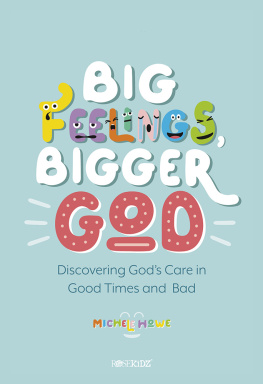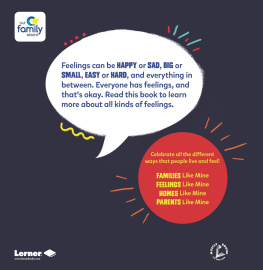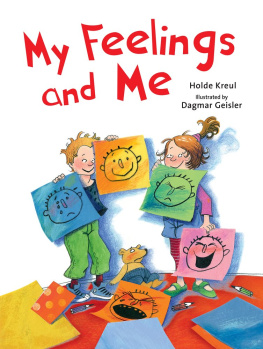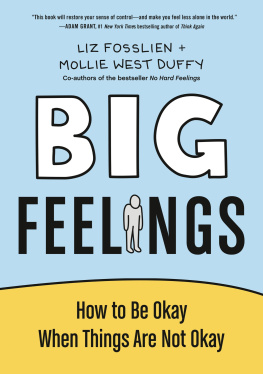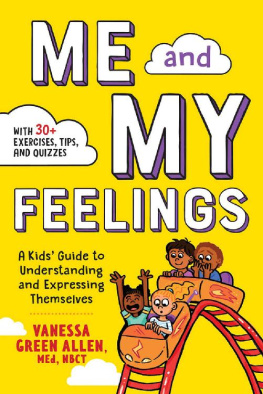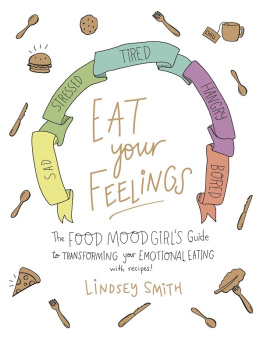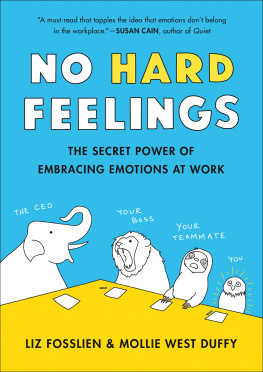How We Heal and Grow
The Power of Facing Your Feelings
~~~
JEFFERY SMITH MD
~~~
Copyright 2014 by Jeffery Smith
All rights reserved.
~~~
Libentia Press
~~~

~~~
10 Stewart Place
Suite 8-GE
White Plains, NY 10603, USA
First Edition, Electronic
ISBN: 978-0-9898881-1-0
Book Design by John Walker
~~~
To Claude
~~~
ACKNOWLEDGMENTS
Leon Balter, who taught an introduction to theory in residency, Cindy, who, over many years, encouraged me to write, Donna Drown who asked for an article and ended up making editorial suggestions, and all those who patiently supported my efforts and offered great ideas. The many patients who have taught me over the years, John Walker, who did the book and cover designs, Margot, my sister, who edited for content and Laura Kenny, my copy editor and Claude, who never let me down.
Contents
FOREWORD
Michael Blumenfield, MD
You are about to embark upon an exciting and fulfilling journey. Your guide will be Dr. Jeffrey Smith, a very experienced psychiatrist who has dedicated his career to understanding how people heal and grow. He will familiarize you with the work of experts in the field such as Sigmund Freud, Margaret Mahler, Otto Kernberg and many others, as well as his own original work. He will not present you with boring, dry psychobabble. Rather he will offer you everyday language and metaphors to which you can relate. He will present conflicts and emotional issues that you know are true to life. This book offers a fresh and sensible way to look at how people develop dysfunctional patterns and how facing feelings that have been avoided is the pathway to healing and growth. Dr. Smith covers the full range of human problems from quirks to serious personality issues. He approaches the subject from a developmental point of view, sharing how most of us have pockets of immaturity and how to outgrow them. He explains how and why the mind resists change and how to stack the deck in our favor.
You can read this book to satisfy your own intellectual curiosity about a fascinating subject. More likely you will find yourself thinking about your own psychological conflicts and difficulties. Some of the insights that come from reading this book may be helpful to you. I suspect that some readers may decide to enter therapy as they realize that they could better fulfill their potential were it not for stumbling blocks from earlier in life. One of the central themes of Dr. Smiths explanation is the phenomenon of catharsis where our underlying raw, unprocessed feelings emerge and lose their power over us and are transformed when we share them with a therapist or trusted other in a context of connection and safety. I can also see the value of this book as a companion as you are going through therapy. It will facilitate your motivation to explore and understand deep-seated feelings and early events in your life. The book will also give you a background and understanding of the therapeutic process that will be unfolding. After reading this book, I have decided to give a copy to some of my own patients as they begin their work in therapy.
Michael Blumenfield, MD
Past President, American Association for Psychoanalysis and Dynamic Psychiatry
Sidney E. Frank Distinguished Professor Emeritus of Psychiatry and Behavioral Sciences, New York Medical College
INTRODUCTION
Why change is not easy, but less hard than one might think.
Why do self-help readers often end up with a collection of books and new knowledge but not much change in their lives? The answer is that when we try to make changes in our dysfunctional ways we find ourselves pitted against a formidable adversary, our own mind. Evolved over millions of years, our mind uses many tricks to protect us from the pain it associates with change. The aim of this book is to tip the balance in your favor.
Armed with the understanding and approaches outlined here, you will be able to follow the action in your own mind and your own life. You will be able to push harder in ways you need to and understand why and how your mind resists. Even more important, as you encounter the feelings you have avoided, an amazing phenomenon I will call catharsis will detoxify those feelings. It will take away their power to stop you and will give you strength to keep your change process moving ahead.
This book is a product of my passion for precise understanding. Maybe another way to describe my quest is that I am even more interested in what I dont know than what I do. One of my early memories is watching a neighbor riding her tricycle on the sidewalk very fast. I must have been about three because I couldnt yet do that. I was amazed by her speed, but what really caught my attention was wanting to know whether the pedals were going straight up and down as it appeared or around in circles as they normally should.
When I was about eight, my father traveled to New York and brought me back a crystal radio kit. How could the music and voices of radio come out of a wire touching a small stone connected to a long antenna wire? I couldnt resist my curiosity and soon began to read books on electronics and build measurement instruments from Heathkits. By the end of high school, I found there were many more subjects just as complex and fascinating. When I started college at Stanford, I took liberal arts courses aiming towards an English major and expected to dig into the depths of literature.
It took me until the spring of my freshman year to realize that I was much too restless to bury myself in the fine points of obscure works. I needed to be part of the real world and interact with people. I had read Catcher in the Rye and discussed psychology in my family so when, for no fathomable reason, I found myself waiting till the last minute to do my work, I saw a psychiatrist. With these experiences, the idea of a career as a therapist was not so foreign, but what really made me want to change my major was a transforming moment in my own life.
I had to write a paper on Dostoyevskys Crime and Punishment . I really liked the book and had written a paper on it in high school. My brain refused to come up with an idea. It was 11 p.m. on the night before the twelve-page paper was due. I began to panic. My world was about to come crashing down around me. It felt like an unthinkable, unspeakable disaster. Then, from nowhere, I suddenly felt a wave of serenity. With it came the thought that, even without the paper, in the morning I would wake up and have breakfast. I would still be myself and alive. There would be a mess to clean up, but somehow, even if I flunked out of college I would manage. As I calmed down, an idea came and I wrote the paper.
I had experienced change. It came in a moment and left me feeling like a different person. The experience energized my desire to learn more about how change happens and to help others as well. With my interest in science and desire to get in close, going to medical school and then psychiatry was the clear choice. Even with the practice of therapy as a goal, I wanted to understand the details of anatomy, physiology, and everything about being human. I wanted to participate in peoples lives and understand them so I could help them flourish and find their own unique fulfillment. This passion has continued unabated to the present.
You will notice that I am using the word mind instead of brain . In this age of technology and science, many self-help books are saying that a better understanding of the brain is the key to change. This isnt wrong, but the study of the brain does not include its contents. It doesnt take into account the specific experiences that have shaped our feelings, behavior patterns, aspirations, and values. Mind covers how our thoughts and feelings are organized, how they interact, and how they grow out of our personal history. Some of what we can learn about the mind comes from understanding how it affects the brain and vice versa, but more of it is about how individual experiences shape and influence us. This book will focus on the mind. At times we will look at the brain but when we do, it will be in order to better understand the individual mind.
Next page

